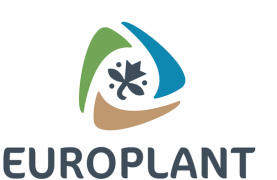Potato (Solanum tuberosum L.) yield and quality are often affected by environmental factors such as high temperature. Quality trait characterization plays a key role in the industrial preference of potato genotypes, while the stress indices response of a genotype is critical in segregating abiotic resilient potato genotypes. A field experiment was conducted to evaluate the impact of elevated temperature on the quality traits, pre-harvest tuber sprouting, post-harvest dormancy, and stress indices of 29 tetraploid potato genotypes under two consecutive cropping seasons (2022 and 2023). The experiment was set up in a split-plot design with four replications and two temperature treatments (control and elevated temperature). The control treatment received the field temperature of the experimental station, while the elevated temperature received a temperature of + 6.0 - 10.0 °C depending on the time of the day. The results showed that elevated temperature significantly (P < 0.01) reduced the tuber dry matter content (DMC) and specific gravity (SG) while increasing the pre-harvest tuber sprouting (PrHS) and the post-harvest tuber dormancy (PoHS). Elevated temperatures improve the quality of French fries and chips with no significant effect on tuber firmness (Firm). Correlation analysis revealed that PrHS correlated negatively with DMC, SG, and PoHS. In contrast, PoHS correlated positively with DMC and SG, and Firm was positively correlated with PoHS while negatively correlated with PrHS. The traits’ principal component analysis (PCA) identified the first 5 PCs with significant influence on the data, cumulatively accounting for 76.19% of the total variability, with the traits association confirming the correlation results. Stress index analysis showed a significant correlation between mean tuber yield of control (Yp) and heat (Ys); heat stress tolerance (TOL) and per cent yield reduction (PYR); heat stress susceptibility percentage index (SSPI) and heat stress tolerance index (STI); mean productivity (MP), geometric mean productivity (GMP), harmonic mean (HM) and yield index (YI); and YI and (MP, GMP, HM), PYR and SSPI. PCA of the stress indices showed four PCs with eigenvalues greater than 1, with a cumulative variance % of 95.30, of which the first two PCs were associated with nine indices, and PC4 was associated with Yp and Ys. Cluster analysis of the stress indices grouped the genotypes into two clusters. This study provides insights into the different quality traits, pre-harvest, post-harvest, and stress indices response mechanisms, as well as accurate evaluation methods of potato cultivars under heat stress, which could be valuable for further research and breeding.
Full publication URL














